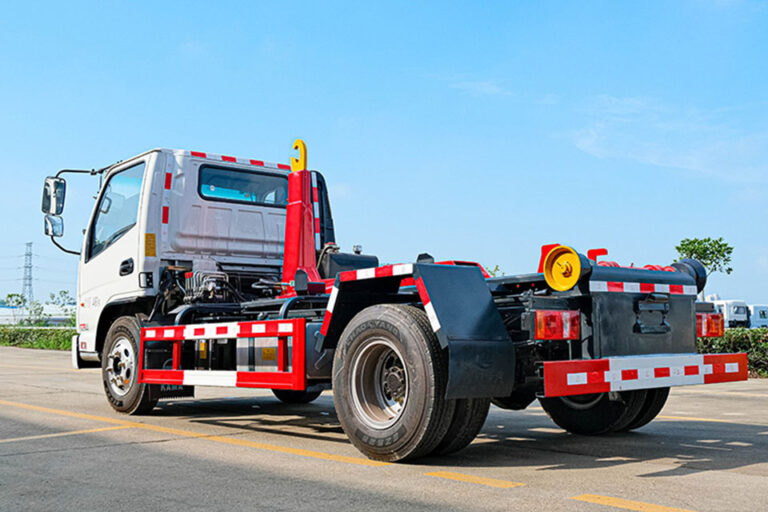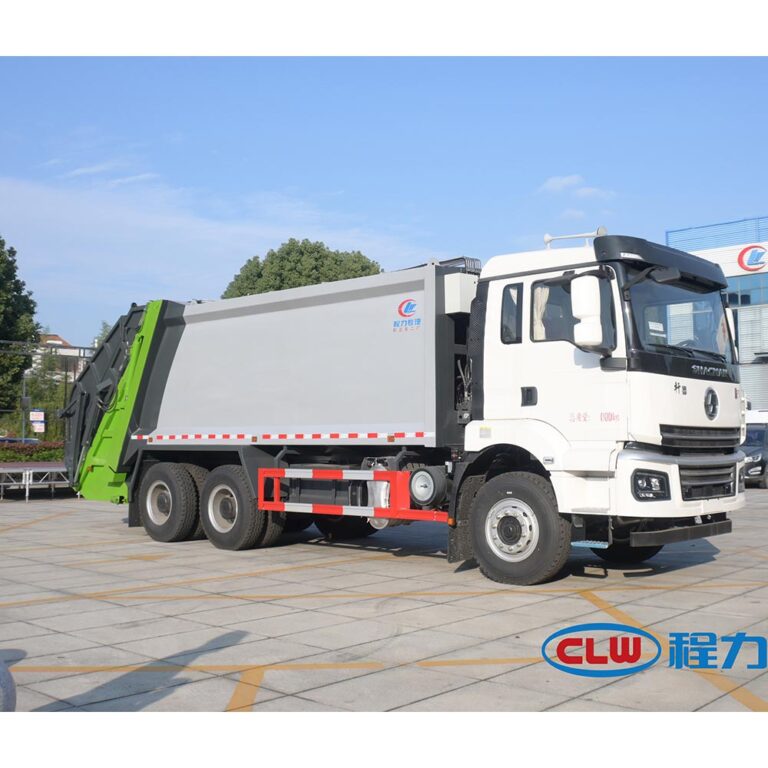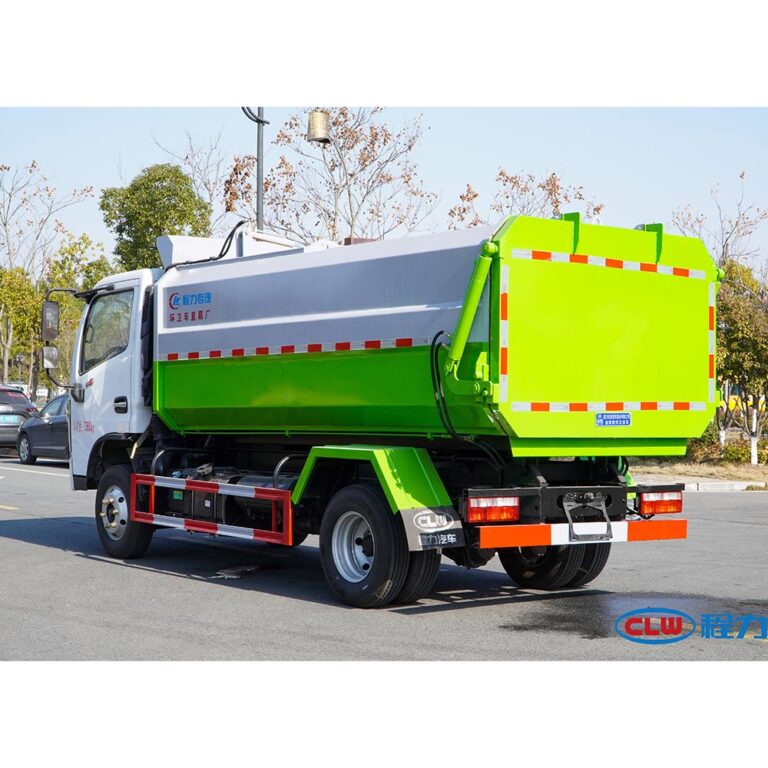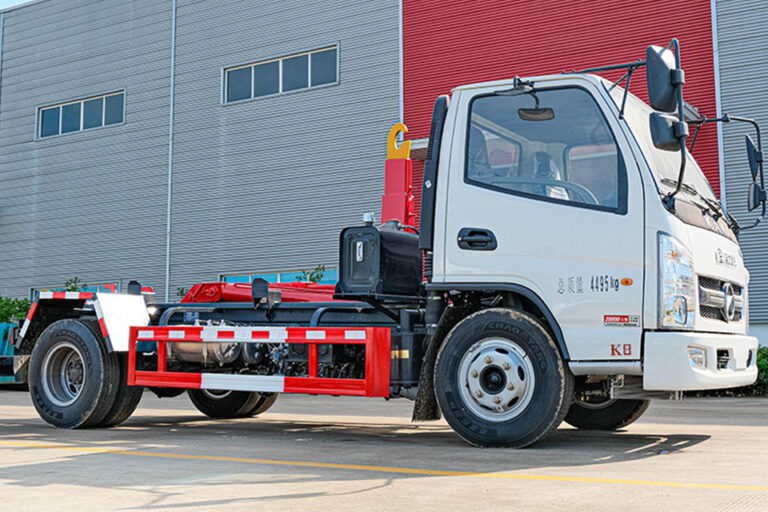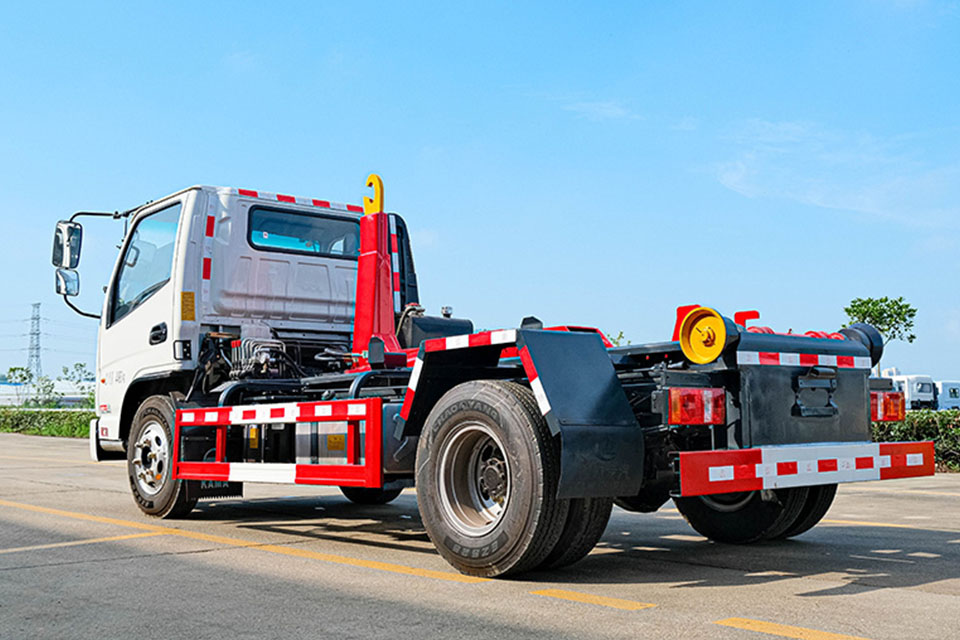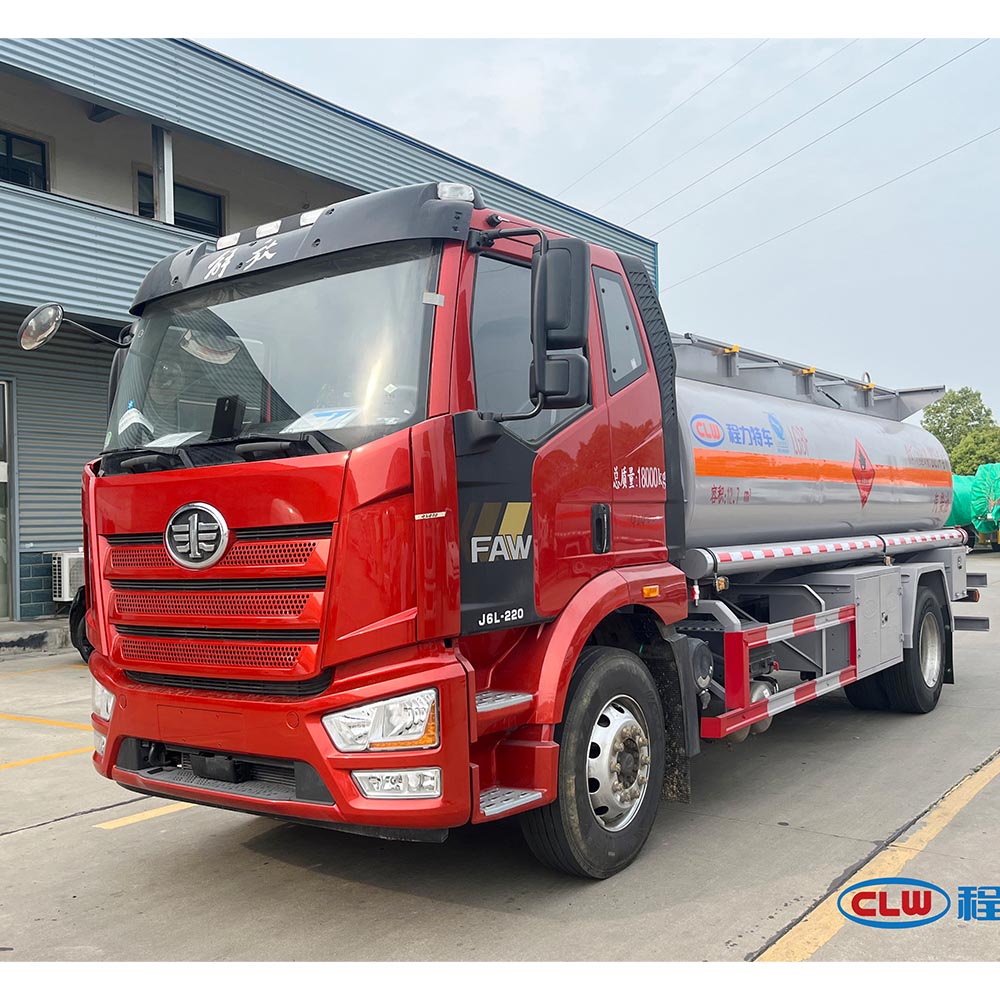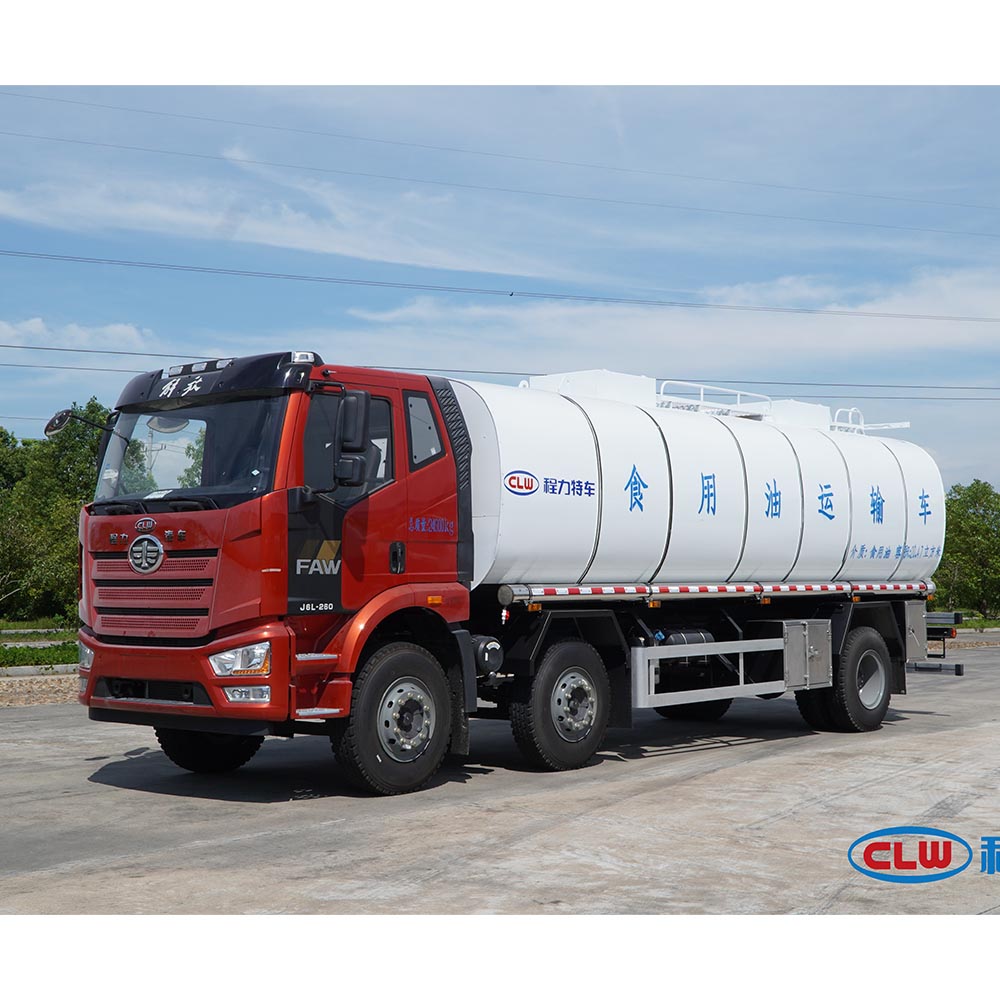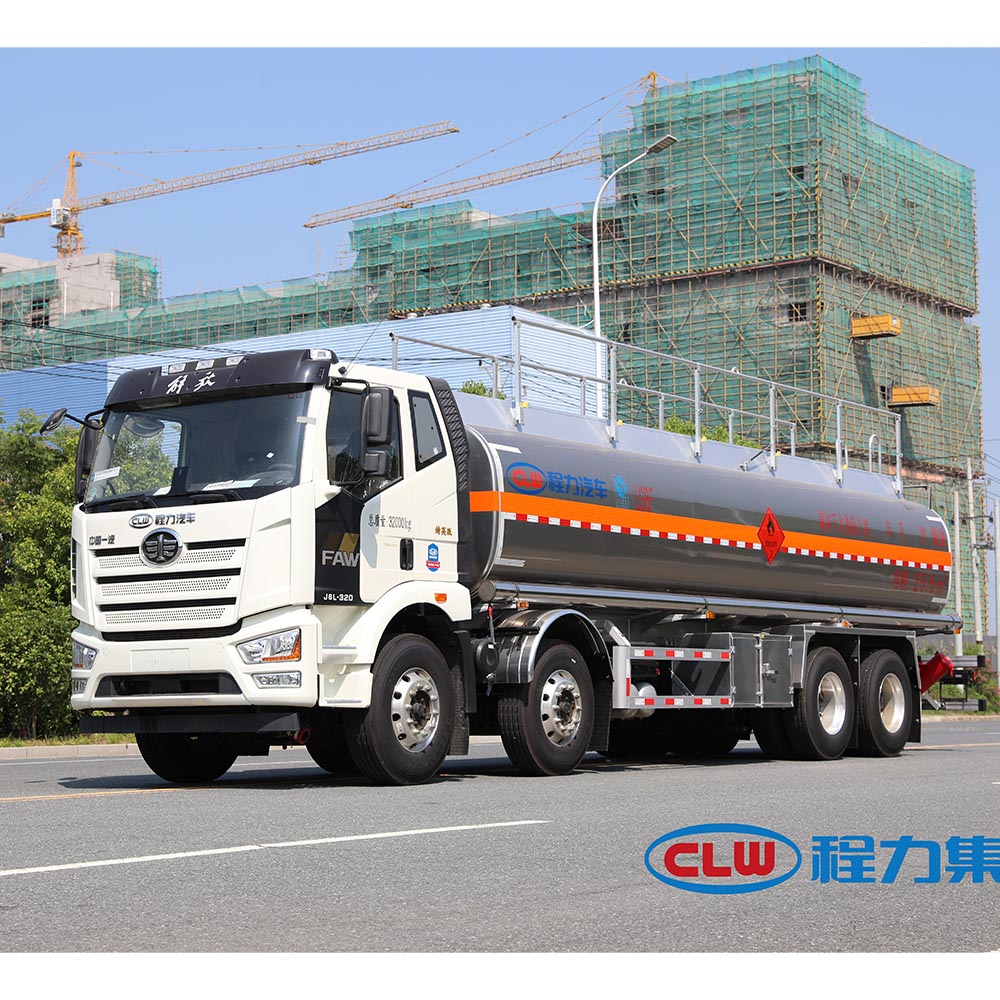-
Chengli Automobile Industrial Park
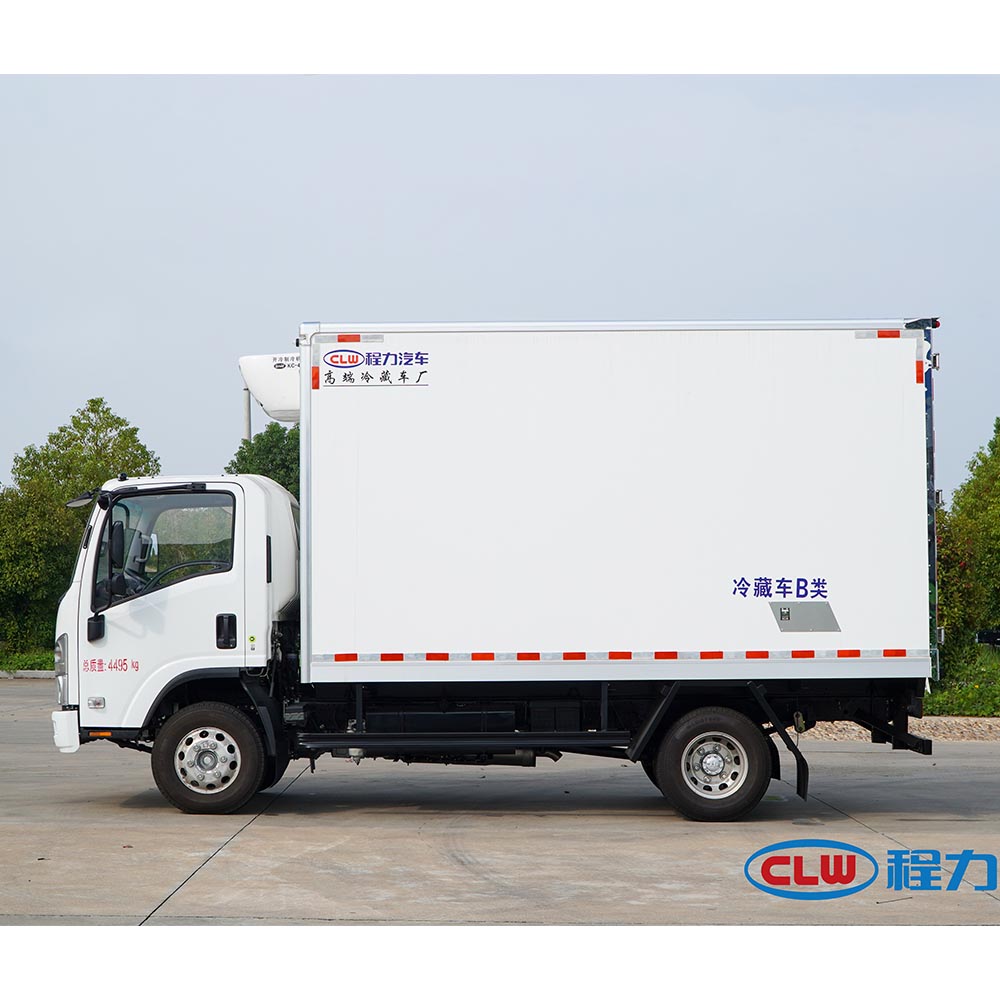
What is the difference between a freezer truck and a refrigerator truck?
What is the Difference Between a Freezer Truck and a Refrigerator Truck?
Choosing the right truck for temperature-controlled transport is very important . If you pick the wrong one, your goods could spoil. This can cost you money and time . This article will help you learn the difference between a freezer truck and a refrigerator truck.
Table of Contents
1. Introduction
Freezer trucks and refrigerator trucks both keep things cold . But they do it in different ways and at different temperatures. Knowing this difference is key for anyone moving food, medicine, or other temperature-sensitive cargo. It is very important for cold chain logistics and cold chain sustainable.
2. What are Freezer Trucks and Refrigerator Trucks?
Refrigerator Truck (Reefer Truck)
- Purpose: A refrigerator truck, also called a reefer truck, keeps things cool, but not frozen .
- Temperature: It keeps a temperature between 0°C and 4°C (32°F to 39.2°F). This is like your refrigerator at home.
How it Works:- Mechanical Refrigeration Systems: Uses Systems to keep everyting cool.
- Key Feature: This temperature stops food from spoiling too quickly . It also slows down bacteria from growing .
- Uses: Great for fresh fruits, vegetables, dairy products, flowers, and some medicines .
Freezer Truck
- Purpose: A freezer truck keeps things frozen solid .
- Temperature: It stays very cold, usually around -18°C (0°F) or even colder.
- Key Feature: This temperature stops bacteria and keeps food safe for a long time .
- Uses: Perfect for frozen foods like meat, seafood, ice cream, and some medical things that need to be super cold .
3. Key Differences: The Big Picture, It is important to Pick the Right One
This is the most important part. Here are the big differences:
Temperature Range
- Refrigerator Trucks: Keep things cold not freezing.
- Freezer Trucks: Keep things frozen.
Refrigerator Trucks:
- Temperature range: Typically maintain temperatures between 0°C to 4°C (32°F to 39.2°F).
- This range is ideal for preserving perishable goods that do not require freezing.
- It will keep food good for a while and Stop microorganisms .
- This inhibits the growth of bacteria and microorganisms, which are the primary cause of spoilage.
Freezer Trucks:
- Temperature range: Designed to maintain temperatures at or below -18°C (0°F).
- This range is necessary for preserving items that need to remain in a frozen state.
- These trucks are essential for transporting frozen foods and other temperature-sensitive products that must remain frozen.
Design and Technology
The way these trucks are built is also different:
- Insulation: Freezer trucks need more insulation. This means thicker walls and special doors to keep the cold air inside. dynamic temperature regulation.
- Cooling Systems: Freezer trucks have stronger cooling systems. They use big compressors to make it very cold.
- Multiple Temperature Zones: Some refrigerated trucks and particularly freezer trucks feature multiple temperature zones.
- This allows for the transportation of goods with different temperature requirements within the same vehicle.
- Refrigerated Truck Rental: For businesses that require occasional temperature-controlled transportation, refrigerated truck rental is a practical option .
- This offers flexibility to meet fluctuating demand without permanently investing in a fleet.
- Pre CoolingTime: To ensure optimal temperature maintenance, the pre-cooling time is important.
- This involves cooling the truck’s cargo compartment before loading.
- Refrigerated truck air circulation is vital for keeping temperatures consistently cool throughout the load.
- Cargo Compartment Design: It is important to think of the cargo compartment design.
What Can They Carry? (Cargo)
What you can put inside these trucks is different too:
- Refrigerator Trucks: Good for things that need to be cool, but not frozen. Think of fresh food, flowers, and some medicines .
- Freezer Trucks: Only for things that must stay frozen. This means frozen food, ice cream, and some medical items that need to be very cold.
- Cross Border Freights. For cross border freightsrefigerated trucks may be used.
- Refrigerated Vans: Suitable for shorter distances and smaller loads.
Detailed Comparison Table
| Category | Refrigerator Truck | Freezer Truck |
|---|---|---|
| Temperature Range | 0°C to 4°C (32°F to 39.2°F) | -18°C or lower (0°F or lower) |
| Primary Use Cases | Fresh produce, dairy, flowers, medicines, beverages | Frozen meat, seafood, ice cream, ultra-low-temperature medical samples |
| Key Features | Prevents spoilage, extends shelf life, inhibits bacterial growth | Halts bacterial activity, preserves texture, long-term preservation |
| Energy Efficiency | Lower energy use (maintains above-freezing temps) | 30-40% higher energy use (sub-zero needs) |
| Design Differences | Standard insulation, lighter cooling systems | Thicker insulation, reinforced doors, heavy-duty compressors |
| Pre-Loading | Goods can be loaded warmer (if pre-cooled) | Cargo MUST be pre-frozen |
| Industry Examples | – Grocery delivery (leafy greens) – Pharmaceuticals (vaccines) | – Frozen pizza (food) – Long-haul seafood |
| Cost | Lower costs (fuel, maintenance) | Higher costs (special parts, energy) |
| Rules | FDA Cold Chain (medicines) | USDA Frozen Food Rules |
Freezer Truck vs. Refrigerator Truck
Key Feature Comparison
Refrigerator Truck
(0°C to 4°C)
Freezer Truck
(-18°C or lower)
Usage Comparison
Energy Efficiency
4. When to Use Each Type: Playing it Safe
Knowing when to use each truck is important:
Refrigerator Trucks are Best For:
- Short trips: Like taking food from a farm to a store .
- Things that can’t be frozen: Some food and medicines will be ruined if they freeze .
Freezer Trucks are Best For:
- Long trips: Like moving frozen food across the country .
- Things that must stay frozen: Like raw meat or frozen meals .
- Full-Freezer Van: A full-freezer van allows for freezing for all types of refrigerated trucks. It has the thickest heat-resistant doors and sidewalls.
5. Cold Chain: The Big Picture, How it all Works
Think of the “cold chain” like a team. It makes sure cold things stay cold all the way from where they are made to where they are used. A cold chain is used in temperature-controlled transportation .
Food
- Refrigerator trucks keep milk and cheese fresh . They are used for refrigerated trucking and interstate transport of perishable goods.
- Freezer trucks move frozen pizzas and ice cream .
Medicine
- Refrigerator trucks keep some medicines, like insulin, at the right temperature
- Freezer trucks are used for some vaccines that need to be very cold.
- They are good for moving products in blood banks
6. Choosing the Right Truck: Don’t Mess Up
Here’s how to pick the right truck:
- Temperature: What temperature does your cargo need?
- Insulation: Freezer trucks need better insulation to stay very cold.
- Fuel: Freezer trucks use more fuel . This will cost more.
7. Mistakes to Avoid: Don’t Make These!
Here are some common mistakes:
- Mixing cargo: Don’t put fresh and frozen things in the same truck .
- Not cooling first: Cold things should be cold before they go in the truck .
- Ignoring the truck care: Check the cooling system often to avoid problems .
8. FAQs: Your Questions
Q: Can I make a refrigerator truck into a freezer truck?
A: No. They are built differently. Freezer trucks have special insulation and stronger cooling.
Q: Do freezer trucks cost more to run?
A: Yes. They use more energy and need special parts.
Q:What is the difference between a reefer truck and a reefer container?
A: A reefer truck is a type of refrigerated vehicle that is used to transport goods, while a reefer container is a type of insulated container with cooling and temperature control features. Reefer containers can also be transported by trucks.
9. Terms to Know
- Temperature-controlled transport: Moving things while keeping them cold (or hot).
- Cargo partitions: Separate zones for different temperatures inside the truck
- Refrigerated vehicle types: Different kinds of trucks and vans for cold transport.
- Refrigerated Trailers Refrigerated trailers are used for transporting goods
- Cold chain logistics: Making sure cold things stay cold from start to finish.
- Refrigeration unit: The machine that makes the truck cold.
- Cargo compartment: The space where the cold things go.
- Temperature range: The highest and lowest temperatures a truck can handle.
- Preservation: keeping safe for a long time.
- Refrigerated Van: a type of truck equipment with a refrigeration unit.
- Cooling Method: Cooling Method including: mechanical, liquid nitrogen, and cold storage.
- Refrigerated truck manufacturers: Companies that make these special trucks.
- Insulation: The material that keeps the cold air inside.
- Temperature-sensitive cargo: Things that can be ruined if they get too hot or cold.
- Cross-border transport: Moving things between countries.
- Fuel efficiency: How much fuel a truck uses.
- Perishable goods: Things that can spoil, like food and medicine.
- There are many kinds of Refrigerated Goods.
10. Real-World Examples
- A grocery store uses a refrigerator truck to get fresh vegetables from a farm.
- A pharmaceutical company uses a freezer truck to safely transport certain vaccines for refrigerated trucking companies.
- An ice cream company uses a freezer truck to deliver its products to stores.
11. How to Pick a Company, Things to Check
- Experience: How long have they been doing this?
- Equipment: Do they have the right trucks for your needs?
- Tracking: Can you see where your cargo is and its temperature?
- Insurance: Are your goods protected if something goes wrong?
- Look for companies that have the ISO9001 quality management, ISO 14001 environmental management, ISO45001 occupational health and safety management system certifications].
- Search for companies that have the automobile energy-saving and environmental protection certification.
12. The Future of Cold Trucks
- Electric trucks: Trucks that run on batteries instead of gas.
- Better insulation: New materials to keep the cold in better.
- Remote monitoring: Checking the temperature and location of the truck from far away .
- AI could be used for route optimization.
13. Conclusion: It’s All About Temperature
Freezer trucks and refrigerator trucks are both important. But they are not the same. Pick the right one to keep your cold cargo safe! If unsure, ask for help from the DOLMA CONTAINER MANUFACTURING PVT or Emerald Transportation company.
Internal Links
- For heavy loads or long distances, understanding Fuel Truck – 12.6m³ Diesel Engine capabilities can be beneficial.
- Learn how the Foton Auman high roof double sleeper refrigerated truck is designed for optimal temperature maintenance.
- Explore the complexities of cold chain logistics and the versatile solutions with the, JAC high-end refrigerated truck.
_Disclaimer-: This is a sample article made by AI and might need changes before using it.

